I never thought that you could make a good soap at home, until a few years ago when I was looking for a cleanser that would be gentle on my skin, and I couldn’t find anything at the local market that would be suitable
. My regular soap maker has moved away and while I experimented with some other soaps, I couldn’t find anything I liked.
Then my friend mentioned, over a cup of coffee, that she made some simple soaps with her daughter and that not only it was fun to make, but surprisingly the soap was excellent quality, and it was lovely to use!
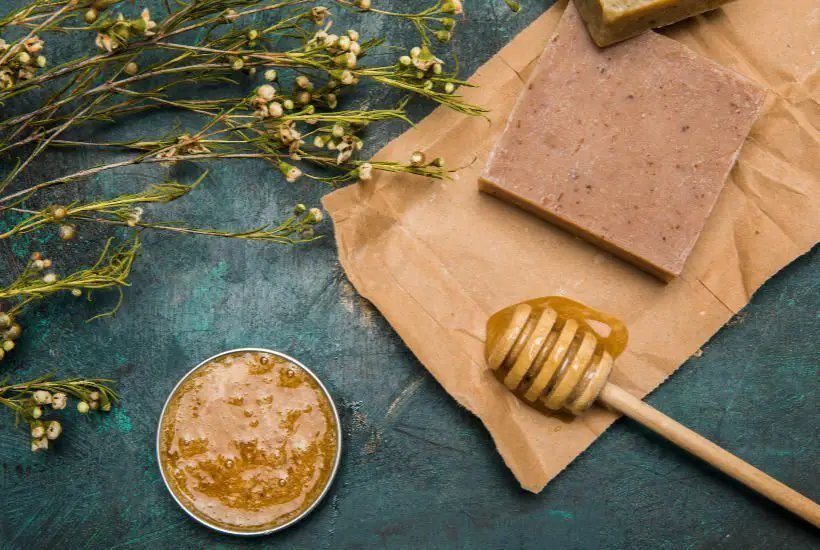
I went back home and found a dusty old book in the back of our bookcase, that had some recipes for home fragrances and cosmetics. It all sounded reasonably simple!
But checking, that the book was from the 1970s I thought perhaps soap making has moved on a little and ventured to my local book shop to see if there are more up to date books on soap making.
I bought a couple of natural soap making books and on the way home stopped in a craft shop to pick up the essential soap making ingredients. That evening I made my first soap, and I got completely hooked!
Here are a few essential things you need to know before you get started with soap making at home.
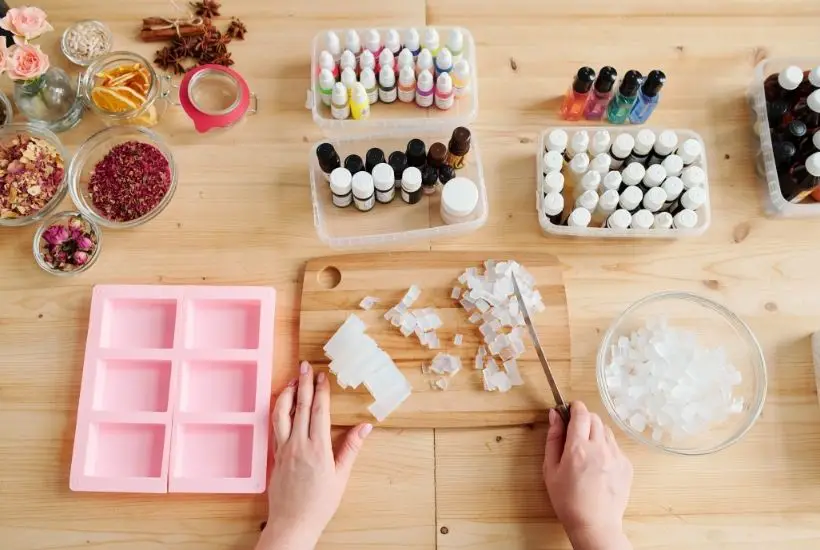
What’s the easiest way to make a bar of soap?
If you are starting, I would recommend using soap base to help you with the first soap making steps.
If you use a soap base, you only need to heat the soap base, mix in other ingredients and use a soap mould to set your soap. The process takes next to no time, and your soap can be used pretty much when it sets (around 60 min from when you pour it to the soap mould).
If you decide to go down the traditional route of cold making soap process, you’ll need to wait for your soap to cure for the best part of 4-6 months.
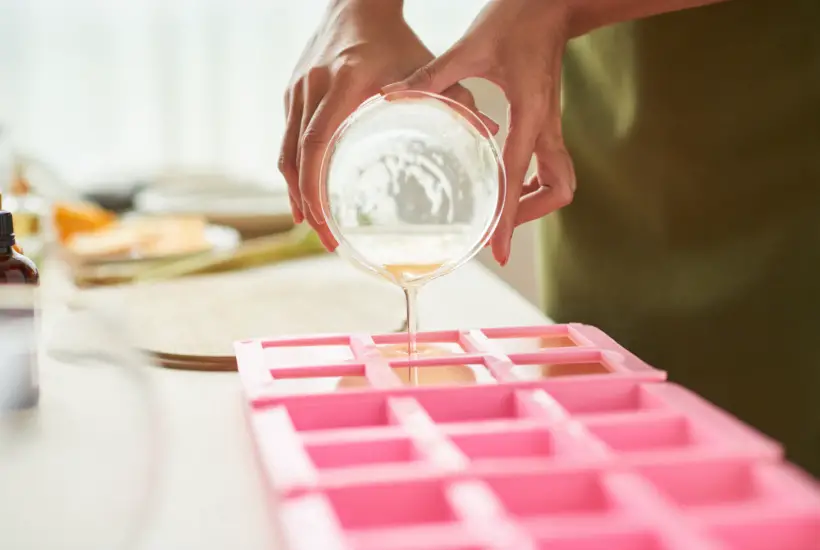
My Simple Handmade Soap Recipes
- Oatmeal, Honey & Milk Soap >>
- Almond & Oatmeal Soap >>
- Coconut & Lime Soap >>
- Rose Petal Flower Soap >>
- Coffee & Hazelnut Soap >>
- Lavender Soap >>
- Natural Soapwort Liquid Soap >>>
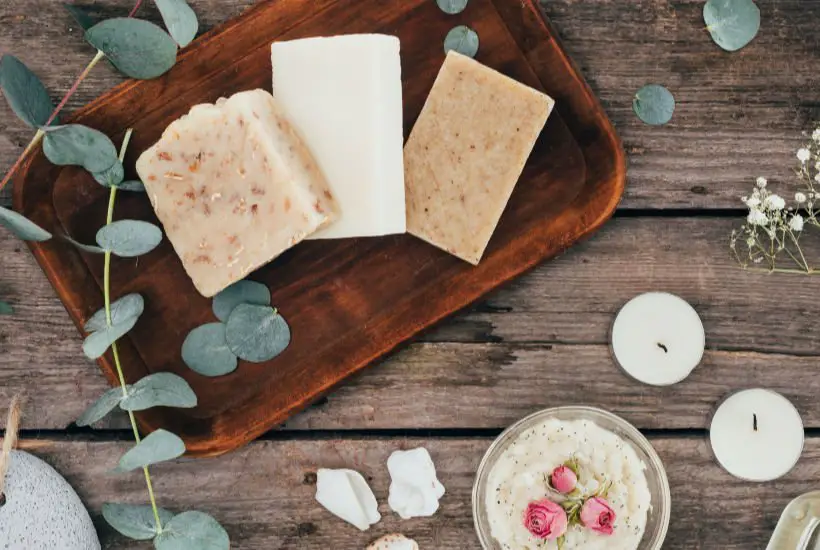
What are the ingredients for soap making?
Each recipe will have individual ingredients listed, but here is what I tend to use in most of my soaps (you don’t usually use all of these in one soap)
- olive oil (great to add moisture to your soap_
- coconut oil (good for lather)
- palm oil (this will produce a firm bar of soap)
- shea butter (great for moisturizing)
- lye (Sodium Hydroxide – the traditional soap making ingredients, that gets rid of dirt)
- Soapwort Plant (root, stems or leaves)
- water
- essential oils
- soap colour
- additional ingredients can also include
- raw honey
- dried flowers – rose petals, herbs
- rolled oats
What equipment do you need for soap making ?
● Silicone soap mold (buy here)
● Large Pyrex measuring cup
● Wooden stir stick

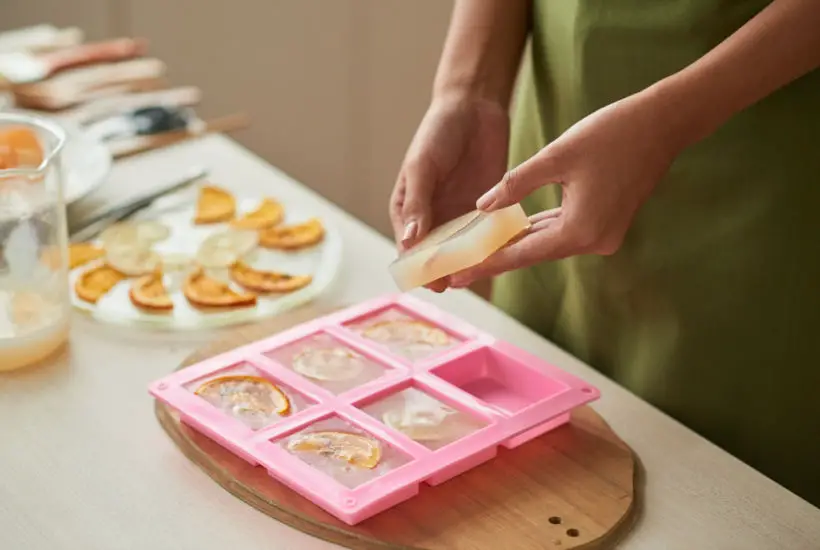
How do you make handmade soap without lye?
Lye or sodium hydroxide can be very harsh on sensitive skins, and that’s one of the reasons why some people might prefer to make a bar of soap without it. The good news is that you can make lye free soap. I have a couple of different soap recipes that you can follow here.
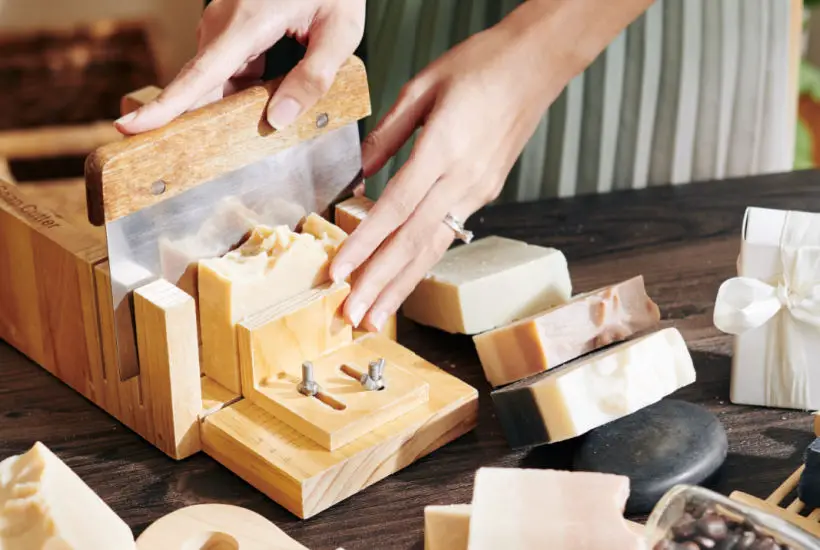
How much does it cost to make soap?
Since we are practically frugal over here, soap making is not just about the fun of learning something new and producing a useful product to replace the need for buying it in the shop, but it’s also about being smart with money. It is without a doubt that a good quality handmade bar of soap could easily cost between £4-6 in an artisan shop.
And while I think it’s still a very good price for something handmade, it could add up if you are buying just artisan soaps all the time. In comparison to that, if you buy a basic soap in a supermarket, you won’t spend much more than 50p – £1.
Now if you compare it to a soap you make at home you will definitely save money on good quality soap, but you will have higher set up cost. You will need to get ingredients for more than one soap and probably get some basis utensils that you might not have at home already (like a separate melting jug, soap moulds etc.).
Saying that a homemade soap still should be affordable to make and no more than a £1 bar.

Can you put perfume in homemade soap?
It sounds lovely, doesn’t it? The idea of making a bar of soap with your favourite perfume. But sadly, the soap ingredients would negatively react with the perfume, and you would end up with either a soap that won’t smell at all of the perfume would be broken into a different smell altogether. And it might not be even pleasant.
It’s best to use a specialist soap making essential oils and fragrance oils for soap making only. These are not particularly expensive, and you can create your own fragrance.
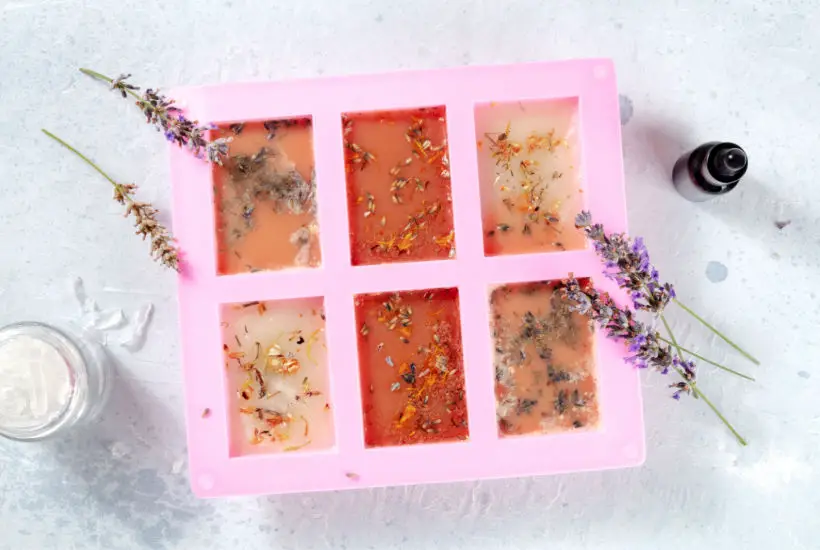
How long will homemade soap last?
Cold processed soaps need to be cured for about 4-6 weeks after removing from moulds. Afterwards, the soap lasts for a few months. Later you might notice the loss of fragrance and the soap might dry up a little.
Poured soaps can be used straight away and will last for several months.
To get the longest shelf life from your soaps, wrap them in a cling film or parchment paper and keep them somewhere cold and dry.
Stay in touch
Hope this post inspires you to make your own natural cosmetics and if you do, I’d love to what you think! Let me know in the comments below or find me on Instagram, Facebook or Twitter and add the hashtag #practicalfrugality so that I can see your post.
Or why not subscribe to my weekly newsletter with frugal living tips and recipes straight to your mailbox.
Magdalena
PIN THIS GUIDE FOR LATER
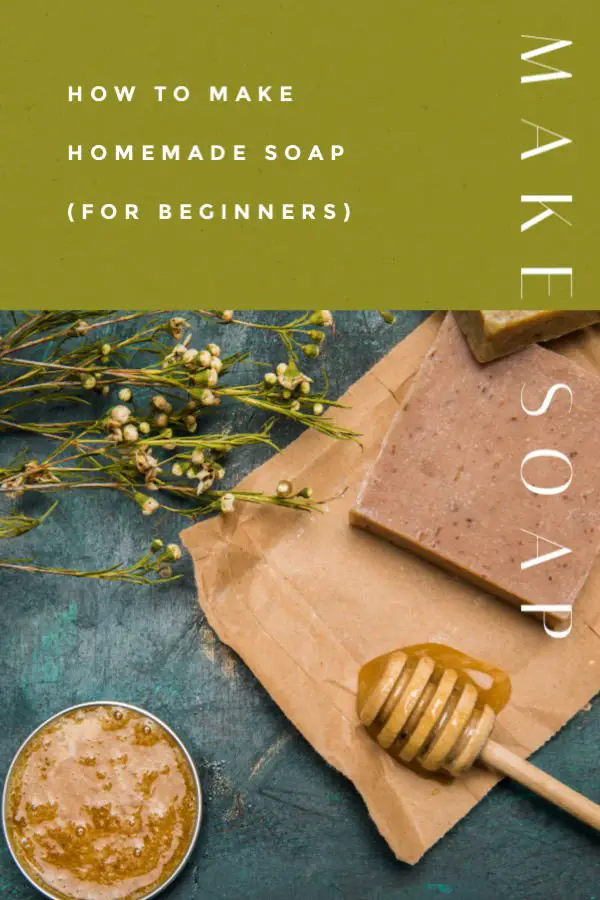

Leave a Reply